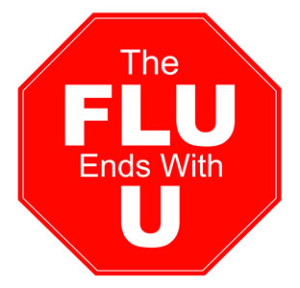Ever since I was little, I chose shots over medicine. Liquid medicine, in my eyes, was a personal version of hell at the age of three. So, I got all shots possible in one day. As I grew older, I continued to get the shots that my doctors, and mother, told me to get. However, is t a good idea for me to continue to get the flu shot?
Pros
Doctors tell you that your best way to avoid influenza is to get a shot, which contains antigens that will help create immunity to the virus. After during research on multiple websites, all asy the same pro to getting the flu shot; that it will prevent you from getting the H1N1 flu virus. Mayo Clinic writes, “Influenza is a respiratory infection that can cause serious complications, particularly to young children, older adults and people with certain medical conditions. Flu shots are the most effective way to prevent influenza and its complications. The Centers for Disease Control and Prevention (CDC) recommends that everyone 6 months of age or older be vaccinated annually against influenza.”
Okay, so the shot can help humans to avoid getting sick BUT, does it truly make a difference? If I do get the shot and I am not susceptible to getting the flu, it will not negatively affect me. If I don’t get it, what will happen? I could still get the flu, getting the shot reduces the rick of only about 70%. So, what are some cons of the flu shot?
Cons
Even with the shot, there is still a 30% chance left that you could still get the flu. Here are some cons:
- A simple con could be that people would have to get a shot, which is not the most pleasant thing to endure.
- The vaccination contains thimerosal which, according to Immunization Action Coalition is, “a widely used preservative in biologic and medical products.” However, this preservative contains All these science words may not mean anything to the average person researching the flu shot, but an article regarding cons of the flu shot on Women’s Day states, “While there’s no conclusive evidence that thimerosal causes any major problems, some people have expressed concern about this ingredient (especially in regards to exposing kids to it). Flu vaccines without thimersosal are available, but only in limited quantities.”
- There are ingredients within the shot that people may be allergic to.
In conclusion, it really is your personal preference on if you get the flu shot or not. Personally, I have gotten the flu either way, but I get the shot anyway and will continue to as well since there have not been any known tragic deaths or diseases caused by the shot.


This was an interesting post for me, because the only year that I have ever gotten the flu, I got the shot. I know that I am probably pretty lucky, but there is still a part of me that never wants to get the shot again. After seeing the statistics that you put forth, and the fact that there are so many people here at Penn State, I will more than likely get the shot and hope that I don’t have a repeat of last time. However I will be pretty upset if I am one of the 30% who gets the shot and then gets the flu.
This post was actually really helpful, because I am considering getting the flu shot, and this lets me know the benefits of doing so. Personally, I think I will get it. I hate shots but if there are no confirmed cons besides being allergic to it, which I know i am not, then I think the benefits outweigh the risks. Getting the flu in college would be terrible!